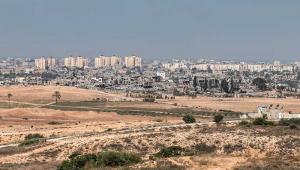It said eight years of conflict and “economic blockade” led to a worsening fiscal crisis in the Palestinian territories, which accelerated “de-development” of the region.
The UN’s Developments in the economy of the Occupied Palestinian Territory report describes this phenomenom as a process “which development is not merely hindered but reversed”.
Last year economic growth in the OPT contracted to 0.4%, its first recession since 2006, the report showed.
It also highlighted the severe water and electricity crises and the destruction of vital infrastructure during the military operations in July and August 2014.
“The prospects for 2015 are bleak, due to volatile political conditions, reduced aid flows, the slow pace of reconstruction in Gaza and lingering effects of Israel’s withholding [$700m] of Palestinian clearance revenue [which comes from tax on imports into the OPT] during the first four months of 2015,” the report said.
“No amount of aid would have been sufficient to put any economy on a path of sustainable development under conditions of frequent military strikes and destruction of infrastructure, isolation from global markets, fragmentation of domestic markets and confiscation and denial of access to national natural resources.”
However, the report reinforces warnings that donor support remains a necessary but insufficient condition for Gaza’s recovery and reconstruction.
Despite it not ending the blockade, it said donor aid will remain vitally important but will not reverse the ongoing de-development and impoverishment in Gaza.








